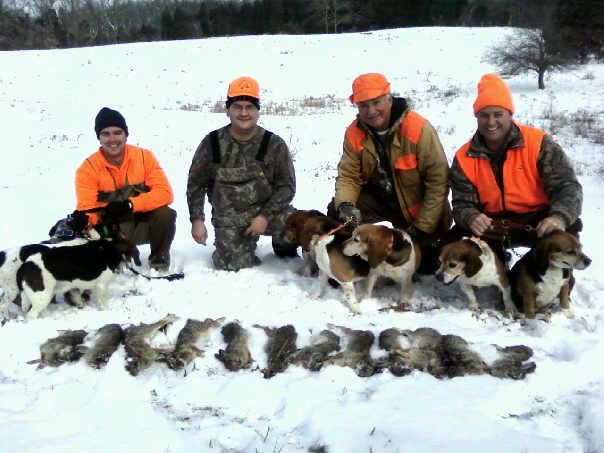Post by Woody Williams on Dec 12, 2011 11:50:22 GMT -5
February Canada goose season to continue
The Indiana Department of Natural Resources is again offering a late season for hunting Canada geese.
The season runs Feb. 1-15 in the following 30 counties: Steuben, LaGrange, Elkhart, St. Joseph, La Porte, Starke, Marshall, Kosciusko, Noble, DeKalb, Allen, Whitley, Huntington, Wells, Adams, Boone, Hamilton, Madison, Hendricks, Marion, Hancock, Morgan, Johnson, Shelby, Vermillion, Parke, Vigo, Clay, Sullivan, and Greene.
The late season helps control the population of the breeding “giant” subspecies of Canada geese around urban areas, a common issue in Indiana and surrounding states. Indiana has offered hunters a late Canada goose season in select counties every February since 2008.
In 2011, the state issued late-season Canada goose permits to 3,906 hunters, and 2,577 of them hunted, DNR waterfowl biologist Adam Phelps said.
Indiana hunters harvested 6,500 Canada geese during the 2011 late season, 800 more than in 2010, according to estimates from the U.S. Fish and Wildlife Service. The total late season harvest for Indiana across all four years is estimated at 25,400 geese.
The U.S. Fish and Wildlife Service first granted Indiana a late season for Canada goose as a three-year experiment. The Indiana DNR is allowed to continue the late season in areas where at least 80 percent of geese harvested during the experimental period were giant Canada geese.
A six-county area near Terre Haute is the only region in Indiana that failed to meet the 80-percent requirement for giant Canada geese. However, the U.S. Fish and Wildlife Service is allowing the Indiana DNR to continue the experimental late season there to determine whether the Terre Haute region will eventually come into compliance, Phelps said. As a result, late- season Canada geese harvested in Parke, Vermillion, Vigo, Sullivan, Clay and Greene counties must still be checked.
Hunters in the remaining 24 late-season counties no longer need to check their geese.
Geese must have the head, a fully feathered wing, and reproductive parts still attached when the bird is checked. Check station staff will age and sex each bird, and will remove and keep the head of all adult birds checked. Data collected from these heads are used to determine whether the late season will continue in future years.
Even if Indiana’s season meets federal guidelines, the season may be closed in future years if local Canada goose populations are sufficiently reduced.
The bag limit for the late season is five Canada geese per day, with a possession limit of 10, same as for the September season. Shooting hours are from a half-hour before sunrise to sunset.
The same regulations and restrictions that apply during the September season apply during the February season. In addition to a valid hunting license, Indiana waterfowl stamp privilege, signed federal duck stamp, and an HIP (Harvest Information Program) number, a free late-season Canada goose permit is also required. The free permit is available at hunting.IN.gov, by phone (317) 232-4200, or at any state Fish & Wildlife Area, field office, or reservoir during regular hours in January.
Hunters are encouraged to get their permits online. That is the easiest and fastest way to get a permit, since it prints immediately and saves postage costs. Hunters are also encouraged not to wait until the last minute to obtain a permit.
The continuance of a late season for Canada geese was authorized through a temporary rule issued by DNR director Robert E. Carter Jr.
The temporary rule that established the late season for Canada geese also established a late season for Ross’s and snow geese (light geese). Federal regulations prohibit the late Canada goose and light goose special seasons being open at the same time. As a result, the light goose season will be Feb. 16 to March 31 in the 30 counties designated for the late Canada goose season, and Feb. 1 to March 31 in all other counties.
The HIP number and federal duck stamp are not required to take snow or Ross's geese during the late light goose season.
For more information: Adam Phelps, waterfowl biologist, (812) 334-1137 or aphelps@dnr.in.gov.






